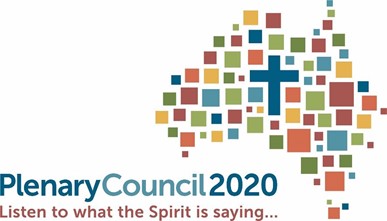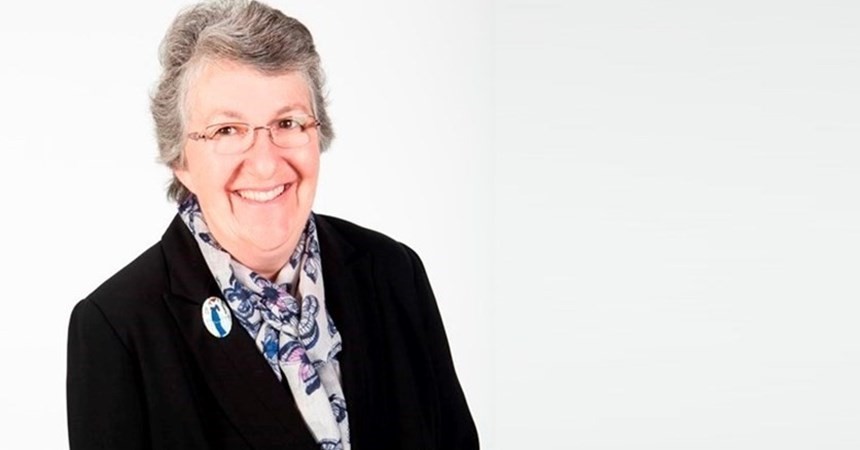 But, it surprised me over the weekend when I spoke to an active parishioner from one of our parishes who did not know anything about the Plenary Council. So, I thought that the Plenary Council and our own Diocesan Synod would form the basis of this week’s message. Each of the theologians, who have visited us, have spoken about this Council and how the Vatican and the rest of the world have their eyes focused on the Australian Catholic Church with immense interest.
But, it surprised me over the weekend when I spoke to an active parishioner from one of our parishes who did not know anything about the Plenary Council. So, I thought that the Plenary Council and our own Diocesan Synod would form the basis of this week’s message. Each of the theologians, who have visited us, have spoken about this Council and how the Vatican and the rest of the world have their eyes focused on the Australian Catholic Church with immense interest.
During the past week, the process which our diocese will use to engage in the Listening and Dialogue Encounters for the Plenary Council was distributed widely to parish and community leaders. During August and September, fifteen sessions will be held across the diocese for the formation of Animators, who will then go back to their respective parishes, schools, agencies and organisations to engage with others in the listening and dialogue process.
A Plenary Council is the highest formal gathering of all local churches in a country. Our Plenary Council 2020 is being held so that we can dialogue about the future of the Catholic Church in Australia. Pope Francis has invited the local church to dialogue. Contemporary Australian society has changed significantly, and the Royal Commission into Institutional Response to Child Sexual Abuse has been a significant and influential event that requires deep consideration and response.
The question that is being posed for the listening and encounter sessions is:
What do you think God is asking of us in Australia at this time?
Interestingly, when this question has been put to people, their initial response tends to be about what is God asking of the Church. This is not the question. We are being invited to think more broadly about Australia. Hence, our need to assist in forming Animators, who will ensure the suggested process of engaging and really listening to people is honoured. My fear is that, if this process is not honoured, the responses back to those who will analyse the data that is fed into the Plenary Council website will not open up possibilities of really listening to the Spirit.
As a diocese, we will receive back all of the responses which are generated here, along with the emerging themes. This will help inform our own Diocesan Synod which we hope will take place around October 2019.

There is a need and desire to hear the voices of everyone. Each person is called as a child of God to respond to Pope Francis’ invitation to become a “synodal” Church – a church of faith-filled people who speak boldly and with passion, and who listen deeply with an open and humble heart. The Church cannot listen if no one speaks. The invitation is open to all because we believe that God speaks to all of us, and the Church needs to listen to everyone.
Some crazy part of me believes, that if we can really engage widely and with openness, the impact of the Plenary Council could influence life in the whole of Australia, not just on the Catholic Church. I also think it could have a major impact on the Universal Church. I realise that dreaming this big may be madness but I ask you to spread the word, and ask anyone you know to go along to these conversation groups, that will be held between now and the beginning of March 2019. If people are not keen to go along, maybe they may like to download the material which can be found on the Plenary Council website and invite others to join them for a chat and then upload their response to the question. I encourage all to use the group process, but if that is not suitable then you are able to upload your own response.
I can see that prayer is an essential part of the process and the Plenary Council prayer is powerful. We are invoking the Spirit to be with us and to guide us on this pilgrim journey. I wonder how many of you have begun praying this as part of your daily prayer or at daily or weekend Masses.
All of us must take responsibility for inviting members of our communities, both within and beyond our church to join in a Listening and Dialogue Encounter, to ensure their story contributes to shaping the future of the Catholic Church in Australia, and possibly Australia more generally. These encounters are an opportunity to get together with friends, family, colleagues, parish, community, school groups, outreach groups, people of other faiths, to spend some time together, thinking and talking about your experiences of faith, life and the Church.
There are three stages to the Plenary Council Process:
Preparation
2018 – Time of Listening – listening and dialogue encounters and submitting responses
2019 – Time of Discerning – consolidating and discerning responses
2020 – Time of Proposing – drafting Council programs and documents for feedback and sharing
Celebration
Plenary Council Session #1 – October, 2020
Plenary Council Session #2 - 2021
Implementation
2021 and beyond
 What is clear to me is that our Church has been attempting to earnestly listen to the voice of the Spirit since the Second Vatican Council of the 1960’s. Pope Francis said, in his address in October 2015, on the occasion of the 50th Anniversary of the Institution of the Synod of Bishops
What is clear to me is that our Church has been attempting to earnestly listen to the voice of the Spirit since the Second Vatican Council of the 1960’s. Pope Francis said, in his address in October 2015, on the occasion of the 50th Anniversary of the Institution of the Synod of Bishops
A synodal Church is a Church which listens, which realizes that listening is more than simply hearing. It is a mutual listening in which everyone has something to learn. The faithful people, the college of bishops, the Bishop of Rome: all listening to each other, and all listening to the Holy Spirit, the “Spirit of truth” (Jn 14:17), in order to know what he “says to the Churches” (Rev 2:7).
The circumstances of the Church in Australia in our time, including the patterns of change that are evident within the community of the Church, the issues confronting the Church in modern multicultural and secular Australia, the increase in entrusting responsibility for and leadership of the Church’s mission to laity, and even the changing face of the Episcopate, prompt the Church to review, analyse and discern the signs of the times, to listen anew to the Spirit, and to chart its course into the future. Most commentators are saying that we are living through a ‘change in an era’ not an ‘era of change’.

Please consider coming along to one of the local animator training and formation sessions, so that you feel confident in animating a group i.e. leading, encouraging, guiding the listening and dialogue. Be on the lookout for opportunities to form or join a small listening and dialogue group. I can see that this could happen in book clubs, bowling groups, playgroups, sporting clubs, walking groups etc. – just anywhere that you enjoy chatting to people about life. If you don’t do this, who will?
Let’s be open to the possibilities.

